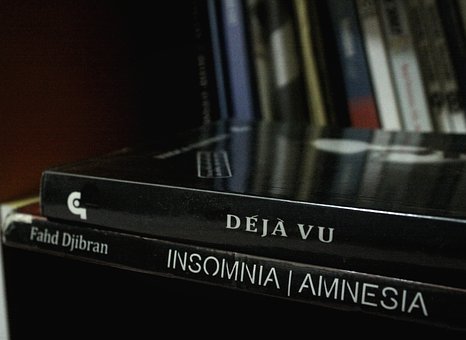
Image credit:- pixabay
Déjà vu is an uncommon event, yet you know it when you feel it. As you stroll through another city out of the blue, something well-known snaps in your psyche, giving you stop. You've unquestionably been here previously.
In any case, you haven't. So what gives?
All things considered, nobody truly knows without a doubt. The birthplace of history repeating itself (French for "as of now observed"), a feeling of commonality with something totally new, stays shrouded some place somewhere down in our brains. The marvel is hard to contemplate—a great many people, when they encounter this feels familiar, aren't snared to a pack of anodes, with clipboard-toting specialists good to go.
Be that as it may, researchers have contemplated the inquiry for a long while: A portrayal of a sensation that this has happened before involvement in patients with epilepsy shows up as right on time as 1888 . The perception was no occurrence—those with a few sorts of epilepsy appear to feel a sensation that this has happened before more frequently than those without the neurological issue. Research on such patients demonstrated that their sentiments of history repeating itself were likely connected to seizure action in the average transient projection, the piece of the cerebrum related with tactile discernment, discourse creation and memory affiliation.
Amid a seizure, neurons fizzle, sending stirred up messages to various parts of the body. For these patients, a sensation that this has happened before is an aftereffect of getting their wires crossed. At the point when a few patients experience cerebrum surgery to stop the seizures, they wake up to a world free of the wonder.
A few researchers set that comparable neural fizzling—a glitch in the framework—likewise causes sound, sans seizure brains to encounter a feeling of recognition when there's no motivation to.
A moment theory includes another mind blunder; this time, the issue is with our memory, says Anne Cleary, an intellectual brain research educator at Colorado State College. Something about another circumstance or setting enacts a memory of a comparative past ordeal, however our brains neglect to review it. Cleary offers this situation to help clarify: Envision you're going by Paris out of the blue, and you have landed at the Louver. Your look arrives on the mammoth glass pyramid extending out of the exhibition hall's fundamental patio, and you get that unusual inclination.
Right then and there, your cerebrum is neglecting to recover a memory that could clarify it away: A couple of months back, you viewed The Da Vinci Code, a film that gives a very close take a gander at the Louver Pyramid. "Without reviewing that particular experience," Cleary says. "You're left just with this sentiment recognition with the present circumstance."
Cleary associated that this sense with nature comes about because of our capacity to recollect the spatial setup of environment. To test this speculation, she set out to initiate a sensation that this has happened before in a research center setting (PDF). Utilizing the life reproduction diversion The Sims, Cleary and her group assembled two scenes, distinctive in their highlights however indistinguishable in their format. The first was a yard setting including a pruned tree in the middle, circled by different plants, and hanging plant bushels on the dividers. The second was an exhibition hall setting that swapped the tree for an extensive statue, the floor plants with carpets and the hanging crates with sconces.
At the point when members investigated the second room, they revealed encountering a sentiment this feels familiar, yet they couldn't interface that to their chance spent exploring the principal room.
"Individuals do have an expanded feeling of history repeating itself when the scene has a comparable design, yet they're neglecting to review the wellspring of that nature,"
Cleary says.
However another conceivable clarification for this feels familiar, says Cleary, goes back to 1928, when brain research Edward Titchener depicted the sensation utilizing the case of intersection a road. As we cross a road, we intuitively look to one side, however in the event that something gets our consideration to our right side, we hand over that bearing. When we look to one side once more, our brains may have overlooked the principal look. This second look triggers a sentiment recognition, in light of the fact that, for this situation, we truly have seen something previously.
By and large, individuals who encounter a sensation that this has happened before can't pinpoint why it's going on. Be that as it may, for what it's justified regardless of, our brains are endeavoring to let us know, Cleary says. Tip-of-the-tongue encounters work similarly: for example, we realize that we know the name of that performing artist in that one motion picture, yet we can't pull it to the front of our brains.
"At the point when recovery fails, our recollections still have a method for alarming us to the way that there's something pertinent in there," she says. "There's something there that perhaps we need to continue hunting down."